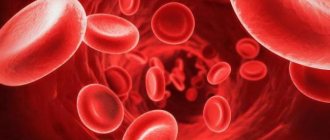Donating blood is a noble cause and, of course, very useful for those who urgently need it. Donors are always in demand. Many people need their help: people with blood diseases, people involved in accidents, victims of disasters, women giving birth, patients undergoing surgical operations.
But what about those who give it away regularly? Surely every person who decided to become a donor was looking for an answer to the question of whether donating blood is harmful. Transfusiologists assure that this is completely safe for the health of the donor if all the rules are followed. Thus, to the question of whether it is useful to donate blood and plasma, doctors give a positive answer.
Why isn't it harmful?
As you know, no more than 450-500 ml can be taken from a donor at a time, which does not have any negative effect on the body. Moreover, the law establishes the frequency of testing: for women no more than 4 times a year, for men no more than 5 times. The interval between procedures when donating whole blood should not be less than two months. If you donate plasma, then for at least one month.
The human body is capable of self-healing. The volume that is donated in one procedure is replenished without consequences in two weeks or a month, which is why you cannot donate more often. If a person comes to the transfusion point for the first time, they may take half the norm.
"No one is safe"
Murad Ibragimov is a future dentist. He is finishing his fifth year and preparing to enter residency.
“The first time I donated blood was in my first year. At first I joined the Nadezhda donor squad as a volunteer. I liked the movement and became interested. Since then, I have been donating blood during every campaign for four years now,” says Murad.
The young man actively encourages his acquaintances and friends to become donors.
“Life is such a thing that no one is immune from the fact that an accident will happen to their relatives or loved ones when they need a blood transfusion. This needs to be realized. Almost all of my classmates and acquaintances were donors or tried to become one. Sometimes there are exceptions - low hemoglobin or other indications. But everyone tried, and everyone wanted. And many succeeded,” says Murad Ibragimov.
Why is it useful?
Doctors say that donating blood is useful for the following reasons:
- Donation reduces the risk of developing cardiovascular diseases. This is especially true for men, who are susceptible to them even at a young age.
- The body is being renewed.
- The work of the hematopoietic system is stimulated.
- The body's immune defense improves.
- The body adapts to periodic blood loss, which will alleviate the condition in the event of an accident or injury.
- Serves as a prevention of liver and spleen diseases.
- The donor's life expectancy increases by 5-7 years.
- It is useful to donate blood to women after 40 years of age. During this period, changes occur in the body associated with the approach of menopause; donors tolerate its symptoms much easier.
- Moral satisfaction from the benefit brought.
- The donor gets two days off.
Myths about donation: is it harmful or beneficial to donate blood?
Myth 1: Donating blood is bad for your health.
Truth: The average amount of blood circulating in the body of an adult is 4000 ml. It has been proven that the periodic loss of 12% of this volume not only does not have a negative effect on health, but also works as a kind of training that activates hematopoiesis and stimulates resistance to stress.
The volume of a one-time donation of donor blood does not exceed 500 ml (of which about 40 ml is taken for the purpose of testing). The body quickly replaces blood loss without any negative consequences.
Myth 2: Donating blood is painful and tedious.
Truth: The donor's discomfort is reduced to immediate pain at the moment the needle is inserted. The further procedure is absolutely painless. Donating whole blood takes about a quarter of an hour. After its completion, the donor may experience slight fatigue, so on the day of the procedure it is not recommended to engage in heavy physical labor or go on a long trip. Donating blood components (plasma, platelets or red blood cells) can take up to one and a half hours.
Myth 3: There is a risk of donor infection
Truth: For blood collection, only disposable instruments and devices are used, which are unpacked in the presence of the donor, and after the procedure they are immediately disposed of.
Myth 4: The need for donor blood is small
Truth: Blood transfusions are needed for patients undergoing complex surgical operations, women in labor with complicated labor, and people with severe injuries or burns. Donor blood and its components are used in the treatment of leukemia and other oncological diseases. According to statistics, every third person on our planet needs a blood or plasma transfusion at least once in their life.
To fully provide the healthcare system with the required amount of blood, 40-50 people out of 1000 must be donors.
Myth 5: The donor needs to eat more heavily
Truth: One day before donating blood, you should not eat fatty foods, dairy, meat, eggs, smoked meats, chocolate, bananas, canned food and fast food.
It is better to donate blood in the first half of the day. Before the procedure, you need to get a good night's sleep, have breakfast, preferring porridge or pastries and sweet tea. After donating blood, you should eat a balanced diet and remember to drink plenty of fluids to replace blood loss.
Myth 6: Donating blood causes weight gain
Truth: There is a risk of becoming fat for those people who, having misunderstood the nutrition recommendations, begin to intensively consume high-calorie foods to donate blood and cannot stop in time.
Myth 7: Donation is bad for your appearance
Truth: Some women fear that donating blood will worsen their complexion and skin elasticity. In fact, regular donation activates the work of the hematopoietic organs, causes the blood to renew itself faster, and has a beneficial effect on the functioning of the immune, cardiovascular and digestive systems. Donors, as a rule, do not have problems with the tone and color of their skin. They are cheerful, fit, active and have a positive attitude.
Regular blood donation teaches the body to quickly replenish blood loss, which can play a positive role in the event of an injury or illness from which no one is immune. It has been clinically proven that donation reduces the risk of developing cardiovascular pathologies. Some men note that regular blood donation has a positive effect on potency.
Myth 8: Donor and recipient must be of the same nationality
TRUTH: Nothing like that! The compatibility of the donor and the recipient (the person to whom the blood is transfused) depends solely on the composition of the blood, that is, the presence or absence of certain proteins in it. For transfusion, the compatibility of blood groups (AB0 system) and Rh factor is important. These indicators are distributed almost equally among different races and ethnic groups. With a suitable protein composition, donor blood can be transfused to the recipient regardless of gender, age or nationality.
Myth 9: Together with the blood from the donor, you will take on your character
Truth: A blood transfusion does not add any of the donor's personal qualities or abilities to the recipient. It can only aggravate health problems if an unscrupulous donor allowed himself to donate blood without giving up bad habits. But not because information supposedly encrypted in the blood will be transmitted, but because breakdown products of nicotine, alcohol and other toxins that can cause harm to health can enter the recipient’s bloodstream.
What is the benefit for the donor?
Regular donation of donor blood provides a person with the prevention of diseases of the immune system caused by metabolic disorders: gout, atherosclerosis, problems with the pancreas, stomach and liver. Researchers have also proven that systematically donating blood for transfusion to patients reduces the likelihood of cardiovascular pathologies, since excess blood and its components gradually puts a greater strain on the blood vessels and heart.
Another bonus is that the donor undergoes free diagnostics before blood donation, according to the website: www.medbooking.com.
Such people are not accepted as donors
In addition to obvious reasons such as infection with hepatitis, HIV or tuberculosis, blood diseases, cancer, you will be denied if you:
3 pregnant woman (blood will be accepted no earlier than one year after giving birth);
3 nursing mother (you can become a donor three months after the end of lactation);
3 had the flu or ARVI less than a month ago;
3 to ten days ago underwent dental surgery;
3 were treated with acupuncture or had a tattoo (piercing) less than a year ago;
3 have recently been vaccinated.
Men can donate blood no more than five times a year, and women - four times a year.
Two days before the procedure, the donor must give up alcoholic beverages. You should refrain from smoking for at least an hour before blood collection. Three days before the procedure, you must stop taking medications that reduce blood clotting (including aspirin and painkillers).
Why is it safe?
Many believe that even if the body does not suffer in any way when donating blood, there is always a danger of contracting infectious diseases through instruments. Nowadays, such a probability is practically zero. During the procedure, only disposable instruments are used, which are opened directly in front of the donor. In addition, they are manufactured in such a way that they cannot be reused. It is best to donate blood or plasma in a modern facility that uses the latest equipment.
During the procedure, donors are in comfortable conditions; all instruments and materials used are disposable only.
In order to feel normal after the procedure, you need to follow the doctors’ recommendations, that is, eat right before donating blood, lead a healthy lifestyle and get a good night’s sleep. After donation, in order not to faint, you should drink sweet tea or juice and sit quietly in a relaxed state. It is best to stay at the blood transfusion station for an hour in case medical attention is needed. Over the next two days, you need to eat nutritiously in order to recover faster. If you feel unwell, it is not recommended to donate blood, and there is no need to hide your condition from the doctor. If you follow these simple rules, the procedure does not pose any danger. You can learn about the rules and preparation for donating blood from this article.
“I want to become an honorary donor”
Elizaveta Chervyakova is a third-year student at the Moscow State Medical and Dental University named after A.I. Evdokimova, future general practitioner. In less than three years, she has already donated blood six times. Even earlier, the girl became a university activist and organizer of similar events.
“I found out that we have a donor movement at our university, I joined it, was an organizer, waited until I was allowed to donate blood according to all indications, and became a donor. I was really, really looking forward to this day,” says Elizaveta.
The girl plans to become an honorary donor in Moscow, and then in Russia. To do this, you need to donate blood 20 and then 40 times, respectively. University events take place every six months, so Elizaveta goes to the blood station at the N.V. Research Institute of Emergency Medicine. Sklifosovsky.
“For those who regularly donate blood, it recovers and regenerates faster. When donating, the body gets used to the fact that it can continue to function during blood loss. I initially chose a profession that would save lives. Since I don't have any qualifications yet, I'm looking for some other ways to help people. And donating blood is one of these measures,” says Elizaveta Chervyakova.
Possible harm
Most doctors claim that donation is good for the health of the person donating blood, and there is no question of any harm, as long as there are no contraindications and all the rules for donation are followed. The only disadvantages could be considered a minor wound from an injection on the arm and the time spent. This is where the so-called harm ends, the rest is benefit.
There is an opinion that regular donation changes metabolism, and a person cannot do without it, otherwise his health may worsen.
When is one analysis enough?
In some cases, the doctor, having received the test result from a fingerprint, already understands what the problem is and how to solve it.
“Blood very often helps to determine various signs of a disease by the balance of blood cells and the ratio of cells,” says Andrey Besedin, candidate of medical sciences, family doctor at GMS Clinic. — For example, a deficiency of red blood cells coupled with low hemoglobin is a typical picture of anemia and it is imperative to look for and eliminate its cause. Sometimes this is enough to immediately prescribe iron supplements at the appointment.”
A blood test makes it possible to understand, for example, that the patient has a serious infectious disease and not a common cold. The level of leukocytes will scream about this.
“With a banal acute respiratory infection or acute respiratory viral infection, you can do without analysis,” says Viktor Shcherbina, a therapist at polyclinic No. 2 in the city of Sergiev Posad. “But often there are additional signs: prolonged fever, severe cough, etc. For example, a patient comes with a cold, but the temperature lasts for more than a week at 37.2-37.5°C. It turned out that the cause was an inflammatory process from pyelonephritis - the patient caught a cold in the pelvic area.”
A general analysis is also a primary oncological screening for diseases of the hematopoietic organs. If suspected, the therapist will immediately refer you to a hematologist or oncologist.
“In case of serious pathology, several parameters may differ from the norm at once,” says Besedin. - There are exceptions - a woman’s temperature “jumped” from 35.5° to 38.5°C for no reason during the day, and there was severe weakness. All the analysis parameters were in order, but the relative and absolute level of lymphocytes turned out to be many times overestimated. This made it possible to detect blood cancer at an early stage.”
The likelihood of a heart attack is lower
According to Professor Birgit Gathof, head of the department of transfusiology at the University Hospital of Cologne, people who regularly donate blood not only get the opportunity to learn about their blood pressure, the level of which is necessarily measured during each blood donation procedure, but also other benefits . Donors are significantly less likely to develop a myocardial infarction than people who do not donate blood. This conclusion is drawn from the results of a significant number of studies on the impact of donation on the health of people who regularly donate blood.









